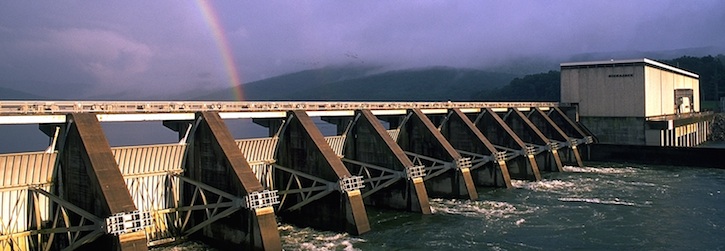
There are parallels to be drawn between municipally operated electric utilities and broadband systems. Brian Fung, a blogger writing in the Washington Post, (h/t to Fred Pilot at the Eldo Telcom blog for the pointer) uses the example of the growth of depression-era federal projects, initiated by Franklin Roosevelt, that generated electricity and used city-run electric systems to distribute it…
Roosevelt launched the Tennessee Valley Authority…and the Rural Electrification Administration, among a number of other offices meant to provide power to those who’d been passed over by the privately owned utilities because those areas weren’t as profitable.
Broadly speaking, the comparison is a good one. Governments in the U.S. have a largely successful track record providing utility services, such as electricity, water and sewers, on a user-pays basis. Many of those systems – the Tennessee Valley Authority is a prime example – began life as taxpayer subsidised projects, but more or less settled into self-sustaining enterprises.
There is a big difference, though, between traditional muni utilities and broadband: competition.
I’d bet there’s an example somewhere of a city overbuilding a private utility, but I might lose. Cities either got into the electric business where no one else was willing to step up or, by one means or another, took over ownership of a privately built system to become the monopoly provider. And in similar situations, a muni broadband project would very likely be equally successful (keeping in mind eventual success required some level of subsidy in the beginning years).
Competition – even relatively ineffective competition – changes the picture completely, though. Faced with the need to offer service to all but lacking the ability to make everyone pay for it puts cities at a severe disadvantage when competing against private ISPs that are perfectly happy to just take part – the most profitable part – of a market.
Local governments should be able to choose whether or not to dive into the broadband business. In making that choice, muni electric utilities offer an excellent example to consider. But the differences must be weighed along with the similarities.
